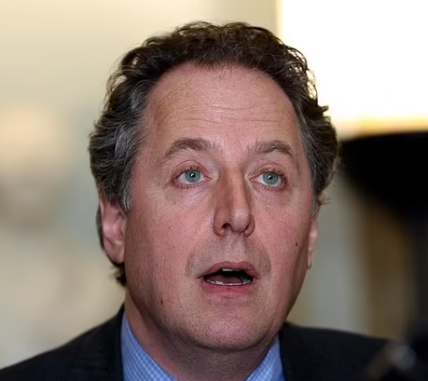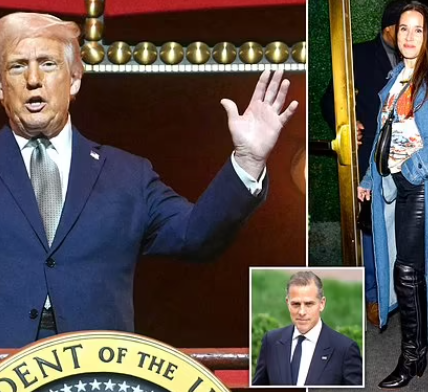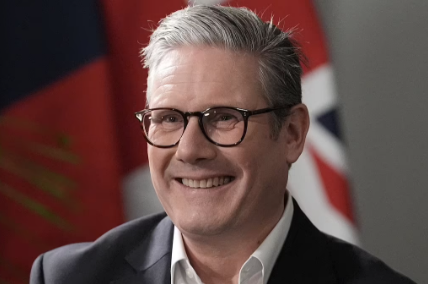Looser loan rules for first-time-buyers and scrapping £100 contactless payment limit among options as Labour desperately scrambles to boost growth_Nhy
Looser loan rules for first-time buyers are among the moves being mulled by Labour to boost growth, it was revealed today.
Financial regulators could offer lenders more scope to back ‘responsible risk-taking’.
Ditching the £100 limit on contactless payments in a bid to free up spending is also said to be on the table.
The options emerged after Rachel Reeves met regulators yesterday and urged them to adopt a ‘pro-growth agenda’.
The discussions came after official figures showed the UK economy effectively flatlining – with a bare 0.1 per cent growth in November failing to offset dips in previous months.
The UK has been battered by markets in recent weeks amid concerns about ‘Stagflation’.

The options emerged after Rachel Reeves (pictured) met regulators yesterday and urged them to adopt a ‘pro-growth agenda’

Official figures yesterday showed the UK economy effectively flatlining – with a bare 0.1 per cent growth in November failing to offset dips in previous months
Volatility has eased somewhat after inflation came in below expectations on Wednesday, but there are fears Labour could have to raise taxes or cut spending to balance the books.
At the meeting yesterday, the Chancellor told bosses of agencies including the Competition and Markets Authority and the Environment Agency they must stop ‘excessively focusing on risk’.
She said while some of the regulators’ ideas were ‘promising’ there needed to be ‘greater ambition and urgency to drive economic growth’, according to The Times.
Ms Reeves and Keir Starmer have committed to the UK having the fastest growing economy in the G7, but the economy has been lagging far behind the US.
In an interview with the BBC, Ms Reeves said growth was ‘not good enough’ and boosting it was the ‘number one mission of the Labour government’.
‘We are not going to be able to grow the economy if the regulators keep doing what they’re doing,’ she said, swiping that there was not ‘a room big enough’ to meet all the UK’s watchdogs.

Ms Reeves and Keir Starmer have committed to the UK having the fastest growing economy in the G7, but the economy has been lagging far behind the US
READ MORE:
Britain’s growth is set to trail the US and Canada despite Starmer’s vow of best performance in G7, IMF says
The UK’s economic growth is set to trail the US and Canada despite Keir Starmer‘s aim of having the best performance in the G7, according to the IMF.
The international body believes Britain will see a 1.6 per cent expansion this year – slightly up from the 1.5 per cent it pencilled in last October.
However, that is largely because the economy is starting from a lower base, with forecasts for 2024 having been optimistic.
GDP is projected to rise another 1.5 per cent next year faster than other European G7 members and Japan. But growth will be slower than the US or Canada, which are expected to record levels over 2 per cent in both years.
The IMF also issued a warning that higher US borrowing under the new Donald Trump administration could further push up debt costs for other governments.
Rachel Reeves has sounded defiance in her first broadcast interview since the UK suffered an extraordinary battering from markets – with the Pound falling and borrowing costs spiking.

The UK’s economic growth is set to trail the US and Canada despite Keir Starmer ‘s aim of having the best performance in the G7 , according to the IMF
Ms Reeves dismissed demands for her resignation, saying she will not ‘let it get me down’ and is ‘here for the long haul’. She also renewed her comparison to Thatcher, saying she is ‘happy to be the Iron Chancellor’.
Volatility has eased somewhat this week after inflation came in below expectations, but there are fears Labour could have to raise taxes or cut spending to balance the books – with pensions potentially in the crosshairs.
Ms Reeves has also been scrambling to find ways of boosting growth to meet Labour’s goal of the highest growth in the G7 – which does not have an explicit timeframe.
Official figures yesterday showed the UK economy effectively flatlining – with a bare 0.1 per cent growth in November failing to offset dips in previous months.
The IMF’s latest World Economic Outlook update indicated that UK economy grew 0.9 per cent last year, rather than the 1.1 per cent it had forecast,
Growth is predicted to accelerate to 1.6 per cent in 2025 and 1.5 per cent in 2026.
It believes the wider global economy will expand 3.3 per cent in both 2025 and 2026, with a 0.1 percentage point upgrade for this year.
‘Global growth is expected to remain stable, albeit lacklustre,’ the report said.
‘Inflation is declining, to 4.2 per cent this year and 3.5 per cent next year, in a return to central bank targets that will allow further normalisation of monetary policy.
‘This will help draw to a close the global disruptions of recent years, including the pandemic and Russia’s invasion of Ukraine, which precipitated the largest inflation surge in four decades.’

Official figures yesterday showed the UK economy effectively flatlining – with a bare 0.1 per cent growth in November failing to offset dips in previous months
The IMF said ‘higher borrowing to fund looser fiscal policy’ in the US could ‘increase demand for capital globally, leading to an increase in interest rates and possibly depressing economic activity elsewhere’.
Responding to the report, Ms Reeves said: ‘The UK is forecast to be the fastest growing major European economy over the next two years and the only G7 economy, apart from the US, to have its growth forecast upgraded for this year.
‘I will go further and faster in my mission for growth through intelligent investment and relentless reform, and deliver on our promise to improve living standards in every part of the UK through the plan for change.’



